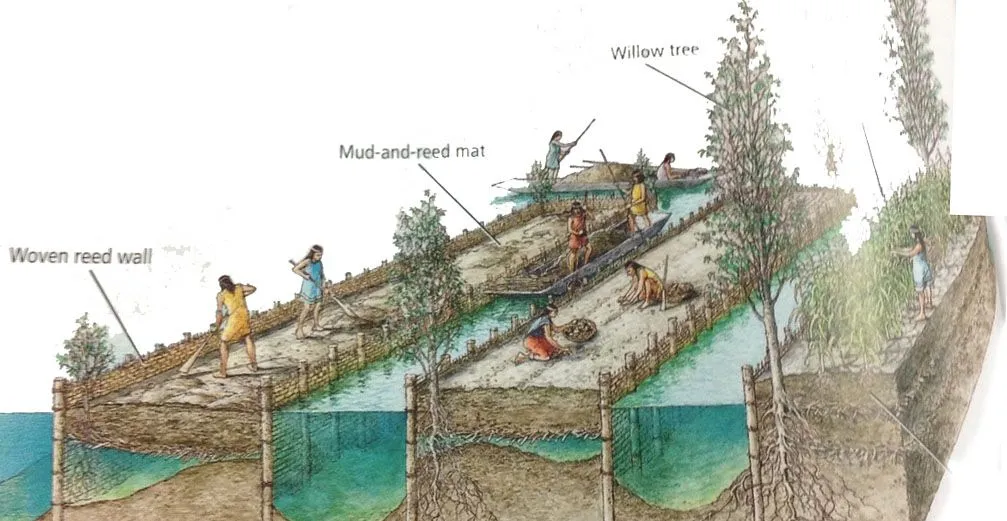this post was submitted on 08 Aug 2024
131 points (100.0% liked)
Illustrations of history
799 readers
56 users here now
This magazine is for sharing artwork of historical events, places, personages, etc. Scale models and the like also welcome!
Generally speaking, actual photos of a historical item should go to [email protected]
Photos of ruins should go to [email protected]
Photos of the past should go to [email protected]
founded 7 months ago
MODERATORS
you are viewing a single comment's thread
view the rest of the comments
view the rest of the comments

Huh. Neat. But why? Seems like a lot of effort just to have your soil eventually washed away anyway…
I guess the "woven reed wall" could stop most of the soil.
Wiki article: https://en.wikipedia.org/wiki/Chinampa
Now I don't understand how it floats. It sounds like they moved the sediments from the bottom of the lake, to between the reed walls. I would expect it should look like the right one on the picture.
I’m gunna make a guess here, no promises it’s accurate.
It looks like there’s a layer of reed mat under the floating dirt. If it’s thick enough, maybe a foot or two thick, it could hold the soil on top of it, and the woven fence bit is just across the top and bottom of the water portion leaving the middle part open to water flow, or maybe just digging it out is enough. The reed mat under the soil could well be attached to the poles to help keep it high enough to function properly, as it probably wouldn’t really float entirely on its own.
I imagine they would need to be rebuilt every few years though. So sort of a rotating thing maybe.
Watched the video posted by @coffee_[email protected] and it seems like they were not actually floating, just simply the lower layers have a lot of moisture, a fish can't swim swim there, no reed mat.
Most other illustrations I found doesn't have clear water below the soil:
Only found this one with similar layers:
Looks like it works sort of like a peat bog. Trapped vegetation on the bottom layer decomposes and tries to float, but the mud/fencing keeps it down, and that's used as a substrate for farming on top. Iirc bog islands like that aren't exactly stable but some of them stick around long enough to grow small trees. Sounds like plenty of time for a few seasons of farming. Maybe it's more like creating an artifical marsh?
Rather than looking at the illustration in the OP as three separate structures, I think it may be depicting a single structure in three stages of development, going left to right.
Looking at it again, I think you're absolutely right. The tree growth is meant to show time passing. Neat!
Because they lived on a massive lake/the rest was arid shitty desert and needed to create space for agriculture iirc.